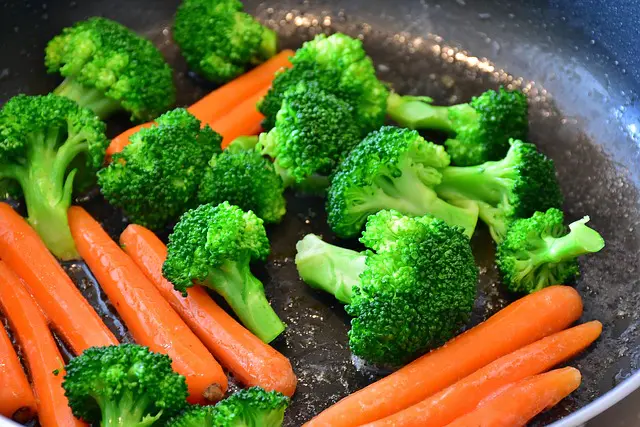Choosing a vegetarian lifestyle offers numerous benefits, with an increasing number of Americans opting for this dietary choice due to its health advantages.
Advantages of Vegetarianism
Those who follow a vegetarian diet tend to outlive their meat-eating counterparts and maintain a healthier weight, often being around 30 pounds lighter. A plant-based diet can potentially extend your life by a decade and help you maintain a healthy weight.
Vegetarians are at a lower risk of developing diabetes, heart disease, and certain types of cancer. This is because plant-based foods lack cholesterol and saturated fats, which are associated with high cholesterol levels and heart issues.
Health outcomes can vary among vegetarians based on their specific dietary choices.
There are three primary types of vegetarian diets:
Lacto-ovo-vegetarians, who consume dairy and eggs along with vegetables, are the most prevalent. Lacto-vegetarians include dairy in their diet but exclude eggs, while ovo-vegetarians eat eggs but not dairy.
Strict vegetarians, on the other hand, consume only vegetables, legumes (such as lentils, beans, and peas), and grains, abstaining from all animal products.
Adopting Vegetarianism
Transforming your dietary habits is no small feat, so having a compelling reason to do so is crucial.
Enhancing your health is a compelling motive to embrace vegetarianism. Your health objectives will serve as motivation during challenging times.
The initial step towards vegetarianism is to identify protein alternatives and recipes that you enjoy. Consider making it a fun challenge to try a new vegetarian recipe weekly as you make this lifestyle change. Many of your favorite dining spots likely offer vegetarian options, which you can preview online.
Maintaining a Vegetarian Diet
Cravings are common during the transition, and one way to manage them is by using meat substitutes.
For example, you don't have to forgo spaghetti and meatballs; instead, explore the variety of meatless alternatives available at your local market. Although the taste might be different initially, you'll likely grow to prefer it due to the improved health and well-being it brings, potentially adding up to ten more years of quality life.
Some individuals prefer to avoid substitutes, as they can sustain cravings and do not replicate the taste of meat. They may opt for alternative protein sources such as lentils, beans, peas, dairy, and eggs.
Coexisting with Non-Vegetarians
Adhering to a vegetarian diet within a household of meat-eaters can be challenging. It may seem like you must choose between sharing meals with your family and maintaining your vegetarianism. However, most families are supportive of their loved ones' health-conscious decisions.
It is entirely feasible to coexist with meat-eaters without succumbing to cravings for meat-based foods. This requires patience and practice. Discuss your reasons for becoming vegetarian with your family, and they will likely support you, as long as you remain non-judgmental about their dietary choices.
Ultimately, every healthy family would wish for their loved ones to enjoy an additional decade of happiness and laughter. Keep your long-term goals in mind, and you'll successfully transition to a vegetarian lifestyle.
Recent
See All2025-02-14
Managing Your Food Cravings: A Guide to Taming Those Temptations
2025-02-14
Embrace a Diet-Free Lifestyle for Everlasting Health!
2025-02-14
Embrace a Plant-Based Diet for Enhanced Health and Longevity
2025-02-14
Transform Your Fitness Routine with High Intensity Interval Training!
2025-02-14
Introducing Healthy Eating to Your Children
2025-02-14
Unveiling the Illusion of Healthy Foods
2025-02-14
Overcoming Unhealthy Habits in a Month
2025-02-14
Temporarily Toss Aside the Scale!
2025-02-14
Welcome to the Era of Health Tech!
2025-02-14
Harness the Power of Physical Therapy to Alleviate Pain
Newsletter
Get life tips delivered directly to your inbox!












